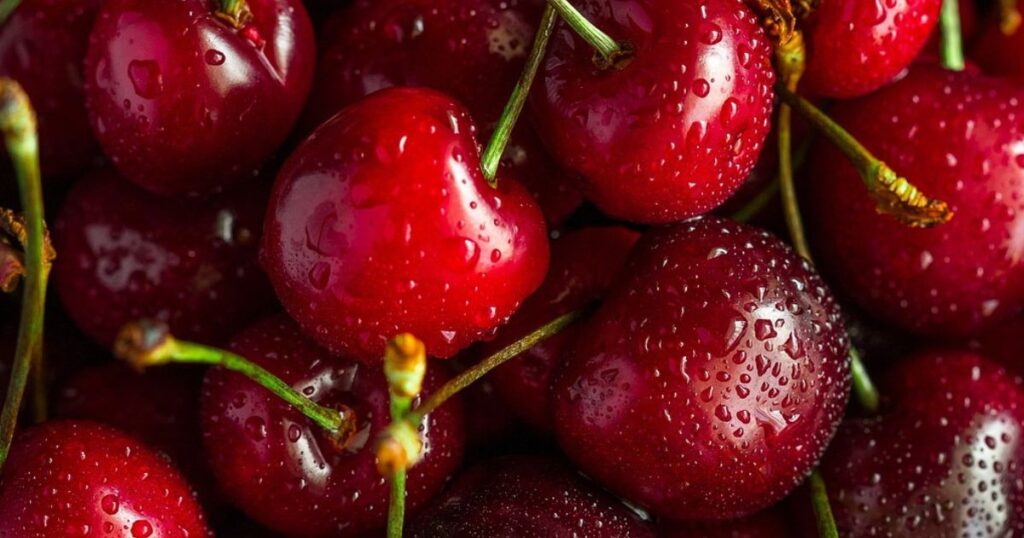
Cherries are delicious fruits that come in various colors, like red, black, or even yellow. They are small and round, with a sweet and tangy flavor that many people enjoy. Cherries are often used in pies, desserts or enjoyed fresh as a tasty snack.
But have you ever thought if rabbits can eat them too?
In short, Yes! Rabbits can enjoy cherries as an occasional treat. Too many cherries can upset a rabbit’s delicate tummy and cause digestive problems. Remember, a small piece or two of cherries once in a while can add a touch of sweetness to their day.
Now, let’s find out more about cherries, their risks and benefits and how you can feed them safely to your rabbits.
Table of Contents
Can Rabbits Eat Cherries?
Yes, adult rabbits can eat cherries, but it should be done in moderation.
Cherries can be a tasty and nutritious treat for rabbits when given in small quantities. The fleshy part of the cherry is safe for rabbits to consume, but it is important to remove the pits or seeds before feeding them to your rabbit. The pits of cherries contain cyanide, which is toxic to rabbits and can cause serious health issues if ingested.
So, it’s crucial to avoid giving your rabbit cherries with seeds!
Other than cherries, rabbits can enjoy various fruits like apple, guava, and strawberries but keep in mind; fruits should only make up a small percentage of a rabbit’s overall diet.
Too much sugar from fruits can upset a rabbit’s delicate digestive system and lead to health problems like obesity or gastrointestinal issues.
How Many Cherries Can Rabbits Eat?
Cherries can be a tasty treat for rabbits, but feeding them in moderation is important due to their high sugar content.
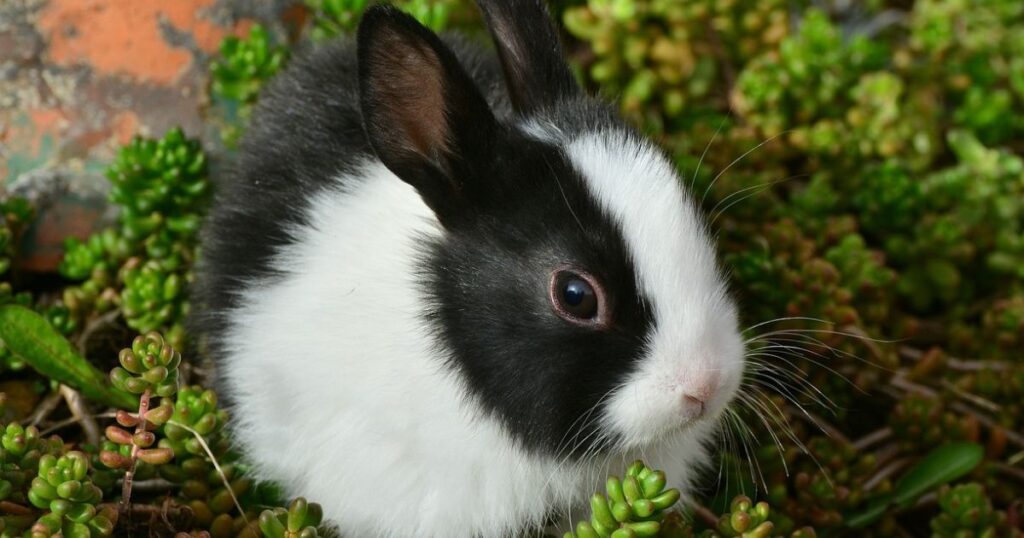
The recommended serving size of cherries for rabbits is a small piece or two as an occasional treat. Remember to remove the pits and stems before offering cherries to your rabbit, as they can pose a choking hazard.
It’s always a good idea to introduce new foods gradually and observe your rabbit for any signs of digestive upset. Providing a balanced diet primarily consisting of hay, fresh vegetables, and a small amount of pellets is essential for your rabbit’s overall health.
Also Read: Can Rabbits Eat Mulberries?
Benefits of Feeding Cherries to Rabbits
While cherries can offer some nutritional benefits, it’s important to remember that they should be given in moderation as a treat.
A typical serving of cherries (3.5 ounces) contains:
- Calories: Approximately 50-60 calories
- Carbohydrates: Around 12-15 grams
- Sugar: Approximately 8-10 grams
- Fiber: Roughly 1-2 grams
Other health benefits may include:
Vitamins and Antioxidants: Cherries contain vitamins A and C, which are essential for a rabbit’s overall health. These vitamins support their immune system and help maintain healthy skin and fur. Cherries also contain antioxidants that can help protect cells from damage.
Hydration: Cherries have a high water content, which can contribute to your rabbit’s hydration. Keeping your bunny hydrated is important for their overall well-being.
Fiber: Cherries provide dietary fiber, which is beneficial for a rabbit’s digestive health. Fiber helps maintain a healthy gut and prevents issues like constipation.
Potential Risks of Overfeeding Cherries
Overfeeding cherries to rabbits can pose several risks and potential health issues.
Here are some risks associated with overfeeding cherries to rabbits:
Digestive problems:
Cherries contain a significant amount of sugar, which can disrupt the delicate balance of a rabbit’s digestive system.
Overconsumption of cherries can lead to gastrointestinal upset, such as diarrhea, bloating, or even potentially fatal conditions like gastrointestinal stasis.
Obesity:
Cherries are relatively high in calories and sugar content. Overfeeding them can contribute to weight gain and obesity in rabbits.
Obesity puts rabbits at risk for various health problems, including joint issues, cardiovascular disease, and decreased lifespan.
Dental issues:
Rabbits’ teeth continuously grow, and a diet that is too high in sugary foods like cherries can contribute to dental problems.
Excessive sugar consumption can lead to tooth decay and malocclusion, a condition where the teeth do not align properly.
So, it’s crucial to offer cherries sparingly and in small amounts as an occasional treat.
Can Rabbits Eat Cherries with Seeds?
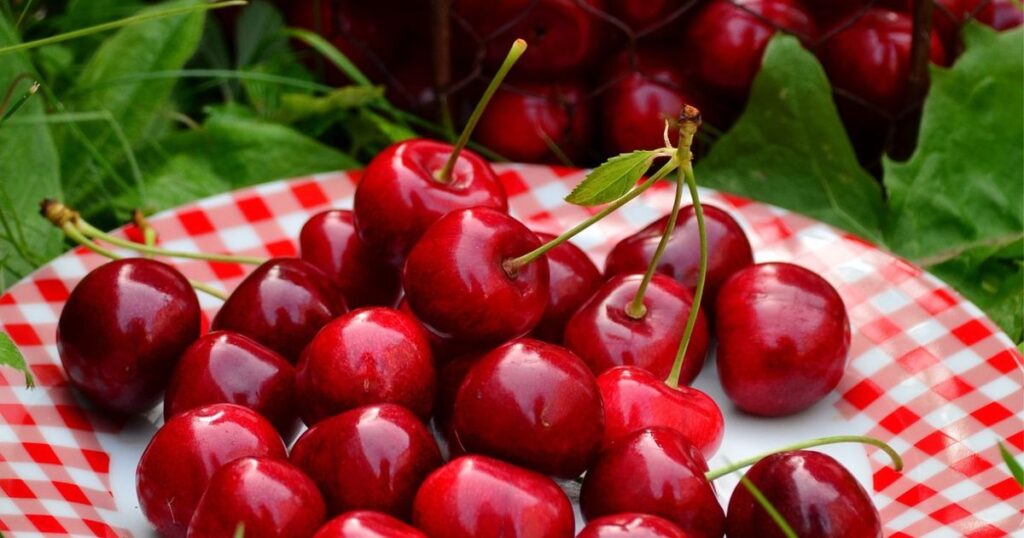
Not really!
As for cherries, it’s best to remove the seeds before giving them to your bunny friend.
Why?
Well, the seeds can be a bit tricky for rabbits to handle.
You see, rabbit tummies are quite sensitive, and the seeds can be hard to digest. They might even get stuck or cause blockages in their tiny tummies.
So, to be on the safe side, always take out the seeds before giving cherries to your rabbit.
You May Like: Can Rabbits Eat Papaya? [Serving, Risks & More]
Can Rabbits Eat Cherry Stems or Leaves?
Rabbits should not eat cherry stems or leaves.
Why?
Well, cherry stems, and leaves contain a substance called cyanide, which can be harmful to rabbits if they eat too much of it.
Cyanide is not good for their little bodies, so it’s best to avoid giving them cherry stems or leaves to munch on.
Instead, focus on providing your rabbit with safe and healthy foods like fresh hay, yummy veggies, and a small amount of pellets. These are the best choices to keep your bunny happy and healthy.
What about Dried Cherries?
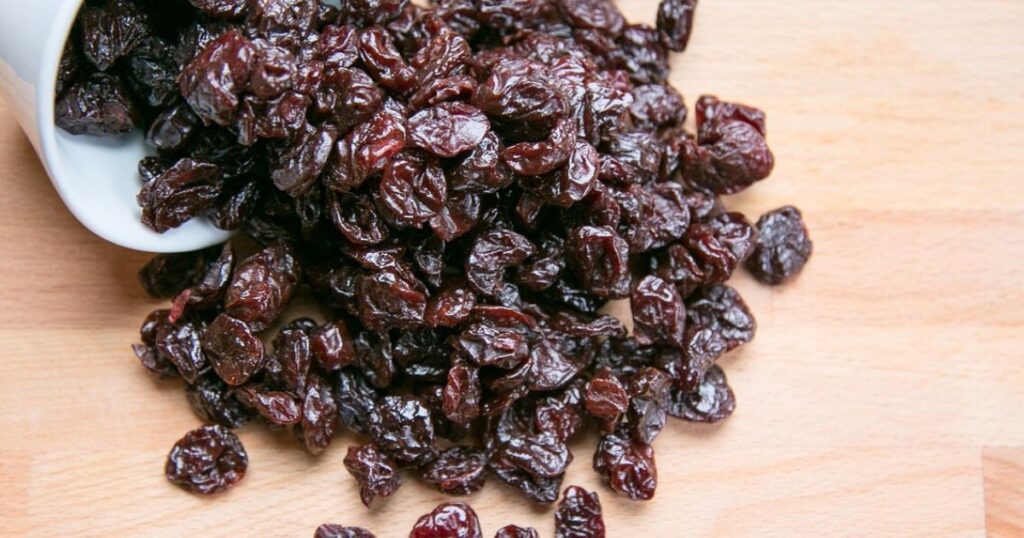
When it comes to dried cherries, it’s best to avoid giving them to your rabbit. Dried cherries have a much higher sugar concentration than fresh cherries, and rabbits should generally have a low-sugar diet to maintain their health.
The high sugar content in dried cherries can lead to digestive issues and even obesity in rabbits.
While a small bite won’t likely make your rabbit sick, its best to avoid them altogether and choose other rabbit-friendly treats.
Do Wild Rabbits Eat Cherries?
Wild rabbits’ diet is a bit different from pet rabbits. Wild rabbits usually stick to their natural diet, which includes things like grass, plants, and leaves that they find in their environment.
While it’s possible that wild rabbits might come across cherries in their habitats, they don’t typically rely on them as a regular food source.
Wild rabbits are more likely to munch on grass and other plants that are abundant in their natural surroundings.
Cherries are actually cultivated fruit, meaning they are grown specifically for people to enjoy. Wild rabbits usually prefer to stick to the foods they find in nature, which are better suited for their nutritional needs.
So, if you happen to see wild rabbits in your area, they’re probably more interested in nibbling on grass and exploring their natural surroundings than eating cherries.
Can Rabbits Eat Frozen Cherries as Treats?
Not really!
While it might seem like a refreshing idea, it’s not the best choice for our bunny buddies.
Frozen cherries can be quite cold and hard, which can be a bit tough on a rabbit’s sensitive teeth and tummy. It’s always best to offer foods that are gentle on their little bodies.
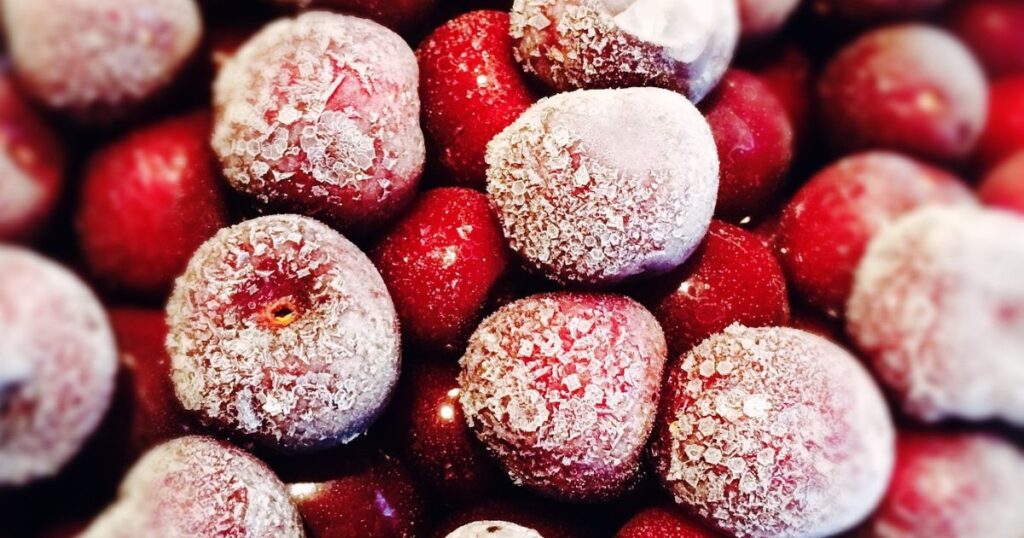
Instead of frozen cherries, you can give your rabbit fresh, juicy cherries in small amounts as an occasional treat. Just remember to remove the seeds and offer them in moderation because cherries have a lot of natural sugar.
And if you want to offer your rabbits something cold, you can give them some ice cubes to lick or even freeze some fresh veggies like carrots or leafy greens to create tasty and refreshing treats.
Can Rabbits Eat All Types of Cherries?
Absolutely!
Rabbits can eat various types of cherries, including black cherries, Bing cherries, and Montmorency cherries.
All of them are highly nutritious for rabbits.
However, don’t forget to remove the pits and stems from the cherries before offering them to your rabbit. The pits can be a choking hazard, and the stems are not safe for them to consume.
Also, cherries should be given as an occasional treat in small amounts due to their high sugar content.
So, whether you have black, Bing, Montmorency, or any other type of cherries, your rabbits can have a bite of them!
How to Introduce Cherries to Your Rabbits?
If you want to introduce cherries to your rabbit, it’s important to do it in a safe and gradual way. Here’s how you can do it:
Start with a tiny piece:
Begin by offering a small piece of cherry to your rabbit. It’s best to start with a piece that is about the size of your pinky fingernail.
This way, you can see how your bunny reacts to it.
Watch for any changes:
After your rabbit eats the small piece of cherry, keep a close eye on them.
Observe if there are any changes in their behavior or if they show any signs of tummy upset, like diarrhea or bloating. If everything seems normal, it’s a good sign!
Increase gradually:
If your bunny tolerates the cherry well, you can gradually increase the amount over time. But remember, cherries should still only be a small part of their diet.
Stick to offering cherries as an occasional treat, not as a main meal.
Remove the pits and stems:
Always remember to remove the pits and stems from the cherries before giving them to your rabbit. Pits can be a choking hazard, and stems are not safe for them to eat.
While cherries can be a yummy treat, make sure your rabbit’s main diet consists of fresh hay, leafy greens, and a small amount of pellets.
Final Thoughts
To wrap this up, rabbits can enjoy cherries as an occasional treat. Just remember to remove those pesky pits and stems, as rabbits don’t want to deal with choking hazards or eating things that can harm them.
And always keep portion sizes small, because too many cherries can lead to tummy troubles!
Cherries can bring a little burst of sweetness to a rabbit’s day, but they should be treated like a special treat; bunnies have their own dietary needs, and it’s up to us to keep them healthy and happy.
Before you leave, here are more helpful articles:
